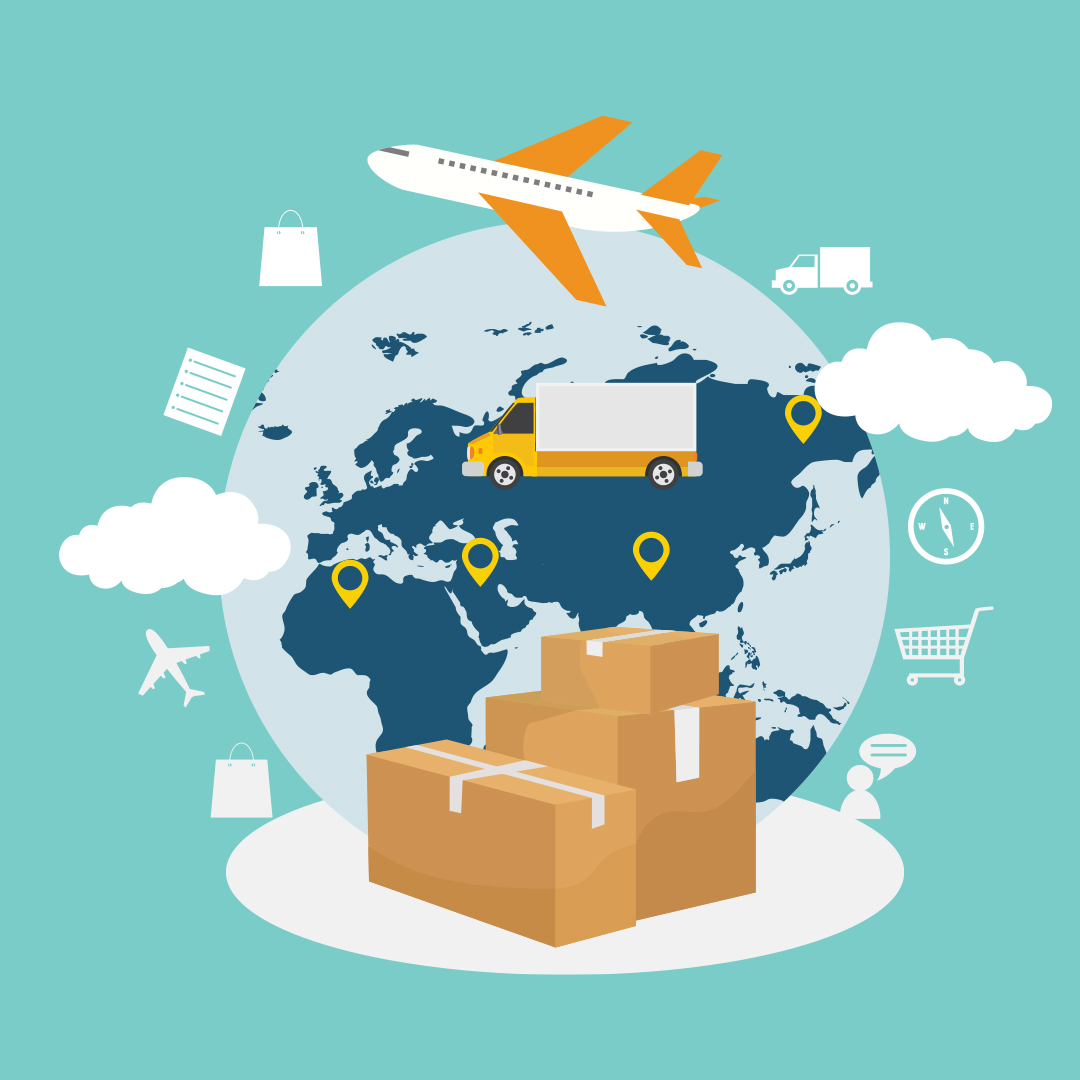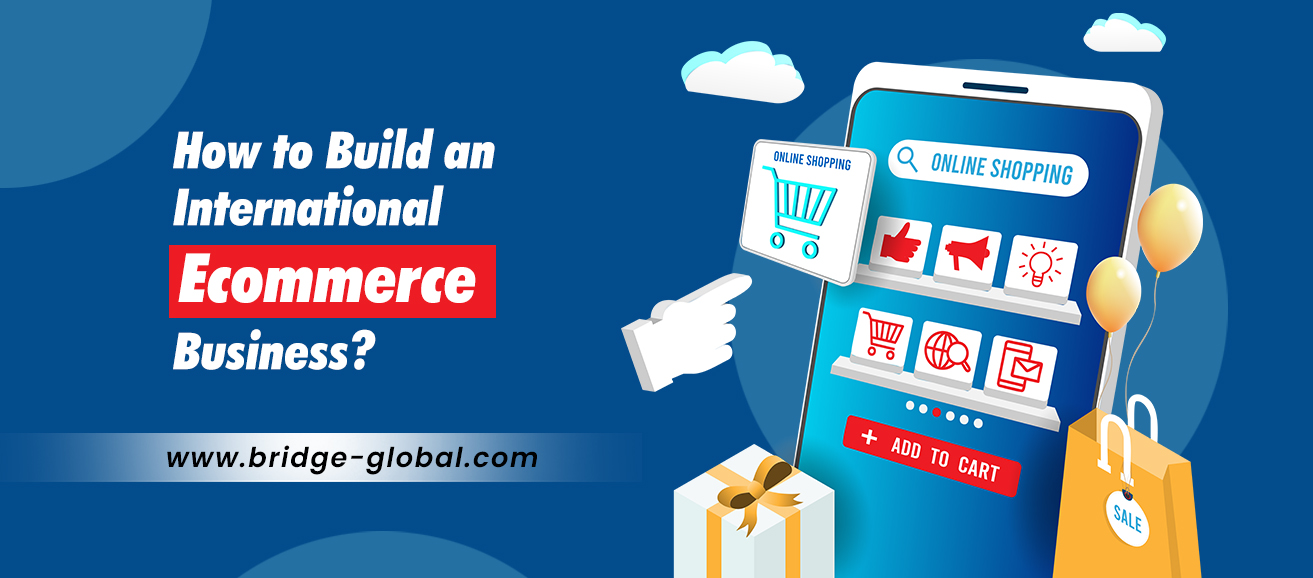7 Steps to Build a Successful International Ecommerce Business
International ecommerce business or global ecommerce business presents a lucrative opportunity as cross-border purchase is on an alltime high. The pervasiveness of digital tools and widespread internet availability facilitates the selling of goods and services easily across international borders.
Though selling internationally is a great way to grow your business, it presents lots of challenges as well. Here, you will find every crucial steps to starting an ecommerce business successfully.
Before diving in straight ahead, let’s sink in some facts: there are 12 – 24 million ecommerce sites worldwide, and hence chances for your ecommerce business to get drowned are very high. Excellent web development services that give customers the experience they demand are what you need the most. Therefore, be sure to hire developers whom you can trust.
Let me move on to help you get started on the right track for the international eCommerce business.
International Ecommerce Business: Steps to Follow
1.Research your international market
Before you expand your business into the international marketplace and start your ecommerce business plan, it’s essential to understand the market and how your company will fit into it.
- Determine what consumers want from an eCommerce shop in their country. In some countries, customers are used to buying online; in others, they may need some convincing. Look at what other companies are doing well and see if there is room for improvement.
- Find out how local businesses sell online by researching which payment methods they accept (cash on delivery? credit card? Alipay?), where they ship from (brick-and-mortar store or warehouse?), and whether shipping costs are included, or additional fees have been tacked on.

- Get familiar with competitors' prices and offerings, so you know exactly what people are paying for similar products throughout the country or region where you plan to sell internationally
2. Set up a website

Setting up a website is the next step to building an online business successfully around the globe. The importance of having a website cannot be stressed enough if you’re eyeing on international eCommerce business.
You want your customers to know about all the services you offer, so the more information you share, the better it is for them and your business. Include pictures of your products, detailed descriptions of each item, and pricing and shipping options.
You should also be sure that any social media platforms associated with your brand are integrated into your site so visitors can easily connect with their favorite pages on Facebook or Twitter right from their homepage (this also allows them to see what other people are saying about you).
Also read SEO Strategy for Ecommerce Websites to know how to drive more traffic to your ecommerce website.
Getting the help of reputed ecommerce development services companies can be a great option. They will help you choose the best ecommerce platforms like Magento, Shopify, WooCommerce, etc. that suit your business strategy and products.
3. Expand your product line
The first step to expanding your business is to focus on a specific category or niche market. A niche market is a smaller version of the leading market that allows you to narrow down what you sell to certain people with specific needs. Many successful businesses have found success by focusing on one product or service and building a brand around it.
The best way to do this is by ensuring that everything from the design of your website, social media accounts, and customer support services are consistent with the look and feel of your brand.

Once you’ve established yourself as an expert in whatever it is that sets you apart from other eCommerce sites, then expanding into new categories should be easy!
Once again: keep things simple! Many benefits are associated with choosing small items such as shirts and t-shirts because they don’t require much storage space like bulky furniture (especially when shipping internationally). Your goal should be ensuring quality over quantity so if something breaks during shipping due to something being broken by accident rather than design fault etc.
4. Market the right way

The first step to marketing your products and services to international customers is determining where you want to target. Social media, search engine optimization, and email marketing are all great ways of reaching local consumers and engaging with them.
If you're selling a product with enormous cultural significance in another country, use that as an opportunity for more targeted advertising on social media or in other digital spaces.
If you have a website or online store already up and running, it's important that it's optimized for local search terms so that people can find your business online when they're looking for what you offer. You should also consider hiring a translator who will help translate everything from your website into the local language (including all product descriptions) and anything else needed, such as your site's shipping information or customer service pages.
5. Find a local manufacturer or distributor
Importing products from overseas can be a great way to save money and make your customers happy, but you should never underestimate the importance of having a local partner.
Local partners can help with:
- Finding suppliers who meet your quality standards
- Testing the product before buying it in bulk (and saving money)

In order to find a good supplier, you'll first need to decide on what kind of product you want to sell. If this is something that's not available locally, then you may have trouble finding someone who will work with you. If possible, try testing out some samples from different potential partners before committing to anything long-term.
6. Figure out how to ship internationally

Shipping costs are a significant part of international ecommerce business and can quickly determine whether or not an international customer will buy from you.
The shipping costs should be calculated before placing the product on the website so that they can be included in the price.
It is best to find a courier service with experience in international shipping since this will ensure that your products arrive at their destination safely and quickly.
It is also essential to select a courier service with an international reputation for being reliable and trustworthy, as this will also help customers trust you.
7. Manage everything, including currency conversion and taxes
One of the most critical aspects of managing an international eCommerce business is currency conversion and taxes. Not only do you need to consider currency exchange rates when selling your products in different countries, but you must also comply with local regulations and laws regarding taxes, duties, customs, and importing/exporting regulations.
To successfully manage your international business operations, you must have a thorough understanding of these areas so that you don’t get caught off guard by any unexpected expenses or delays.

Businesses planning on selling internationally should understand local markets, regulations, taxes, and shipping
If you plan on selling internationally, there are many things to consider. First and foremost, you need to understand your business's market. Countries have different laws and regulations regarding shipping, taxes, and even website language requirements. For example:
- In the United States, by law, businesses must collect sales tax from customers who purchase products from their online store. This can be done through Shopify’s built-in sales tax feature or with an app like TaxJar.
- In Canada, any product shipped out of the country must be labeled as such so that customs does not confiscate it at customs or duty-free shops.
You’re now better equipped to explore the world of international eCommerce. You know what questions to ask, what mistakes to avoid, and how to make the most of your time and money. If you have any questions about these steps, feel free to reach out in the comments!
Contact us to get a tailor-made team of ecommerce developers to help you build a customized ecommerce website and mobile app to take your international ecommerce business to soaring heights.



